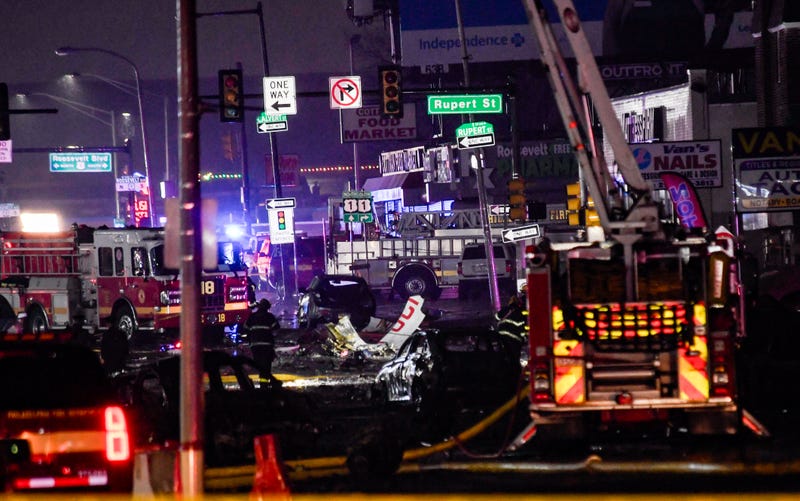
PHILADELPHIA (KYW Newsradio) — Traumatic events can take a heavy emotional toll on people who witness them.
On Wednesday, a passenger jet collided with an army helicopter at Ronald Reagan National Airport in Washington, D.C., sending the two aircraft into the Potomac River and killing all 67 aboard.
A few days later, a medical transport jet with a pediatric patient and five others aboard crashed in Northeast Philadelphia near the Roosevelt Mall. All six passengers died. Several homes and cars were set ablaze, and fiery debris was strewn about. At least one person on the ground died, and 19 people were transported to a nearby hospital for treatment, according to Philadelphia Mayor Cherelle Parker.
Bryn Mawr Psychologist Dr. Amanda Viner says the human body often enters a stress response during and after these moments, as people are not “hard-wired” to see this many repeated tragic events.
“So a lot of the time when we see this, we can really see an uptick in a lot of anxiety and even acute stress, kind of where our systems are going into overdrive,” she said.
Viner says “compounded trauma” can also have long-term impacts on children.
“… They have a certain understanding of the world. And when you see plane crashes, especially in your area, and people being affected in your area, it really creates this feeling that flying isn't safe, that maybe I am not safe. Anything can happen at any moment,” Viner said.
“You can see longer-term impacts for, you know, panic disorder, flight anxiety. … I mean, we know that technically, driving is less safe than flying, but it can create this feeling that flying is even more dangerous than statistically that it is.”
Viner says if your child is having difficulty sleeping or experiencing more anxiety in the coming days or weeks, check in with them and remind them it is okay to be scared and have these feelings.
Viner says it is important to set limits for both yourself and your child, especially when it comes to media consumption.
“It's good to be informed, but repeatedly watching the clips over and over again is something to just be mindful of, because usually, you know, that's not good for most people.”
She suggests taking kids outside to get them away from electronics, social media and the news.
“I think children also need some reassurance that, you know, the news shows a lot of things, and that's not necessarily representative of how often these things really happen. As far as you know, planes crashing, although it is a tragedy, and it has happened, most of the time, we're not seeing that on a daily basis.”
For mental or behavioral health services, contact the city's Department of Behavioral Health and Intellectual Disability Services.
